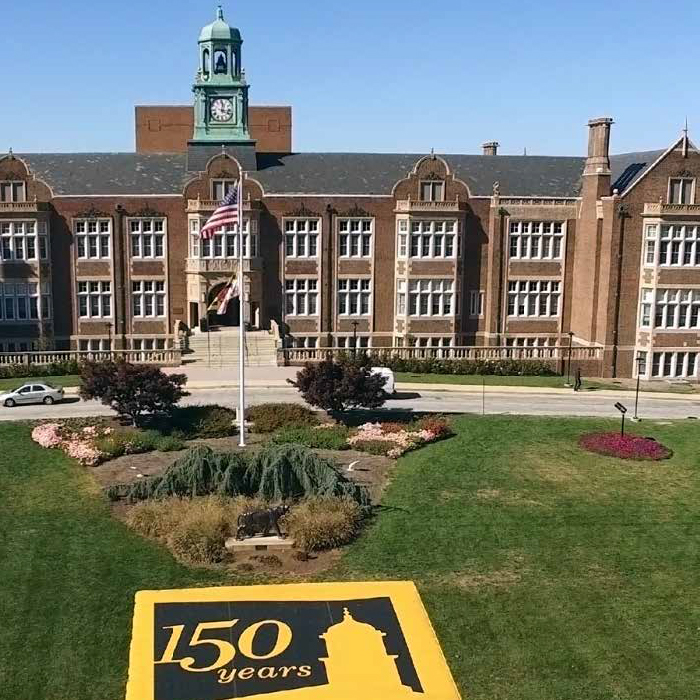Human Development Index Disparities in Baltimore City
RESI reports on human development issues in detail, and identifies three strategies for working towards inclusive human development growth in Baltimore City.
RESI has published hundreds of reports for various clientele regarding economic and policy analysis.
Reports have included economic forecasting and fiscal impact analysis, survey analysis, and interviews and focus groups.

The 2030 Greenhouse Gas Reduction Act Plan lays out the state's approach to Maryland's Greenhouse Gas reduction goals. The Plan calls for a goal of 50% reductions by 2030, as recommended by the Maryland Commission on Climate Change. With federal actions on climate change anticipated, Maryland expects to be able to achieve that goal.
READ FULL REPORT
RESI independent research (November 2019) examines the effect that increased educational attainment would have on students’ lifetime earnings, as well as the ripple effects of those earnings on total personal income in Maryland.
READ FULL REPORT
RESI independent research (November 2019) measured the potential impact of increasing Summer SNAP funding. Such an increase would further alleviate food insecurity, improve the quality of life for thousands more children, and greatly benefit Maryland’s economy.
READ FULL REPORT
RESI independent research (November 2019) concludes that by aggressively pursuing evidence-based policies that enable the most efficient ways of connecting people with opportunities, the region can become a leader in sustainable growth.
READ FULL REPORT
RESI independent research (November 2019) highlights how the adoption of Public-Private Partnership (P3) programs, which allow local governments to partner with area businesses, can lead to positive workforce development outcomes.
READ FULL REPORT

Commissioned by MD State Arts Council (December 2018), this survey analyzes data resulting from an annual report distributed to each of the Maryland arts and entertainment districts.
Read Full Report
Commissioned by the Association of American Railroads (October 2018), this report calculates the economic and fiscal impacts of operations and capital investments of Class I Railroads, a major transportation and economic contributor, in the U.S. economy.

Commissioned by Washington Gas Light Company (July 2018), this reports estimates economic and fiscal impacts of natural gas pipe infrastructure replacement for two five-year time periods (01/14–12/18, 01/19–12/23) in accordance with the Strategic Infrastructure Development and Enhancement Program.
Read Full Report
Commissioned by the MD State Arts Council (October 2017), this report details the economic and tax impacts of the 24 Maryland Arts and Entertainment Districts in existence during the study period on Maryland’s economy.
Read Full Report
Commissioned by the MD Department of the Environment (December 2016)[CM1] , this retrospective, or “true-up,” analysis of past employment calculations pertaining to select programs— EmPOWER Maryland, Regional Greenhouse Gas Initiative, and MD Renewable Energy Portfolio Standards—within the Greenhouse Gas Emissions Reduction Act 2012 plan.

Commissioned by the Association of American Railroads (October 2016), quantifies the economic and fiscal effects resulting from the shipment of commodities via Class I railroads. Focusing on rail transportation expenditures by firms that produce, process, and use a variety of products in the U.S.

Commissioned by a group of MD Natural Gas Local Distribution Companies (January 2016), this economic and fiscal impact analysis reports on expansion of natural gas infrastructure on industrial, commercial, and residential users for a projected ten-year period, 2016–26.
Read Full Report
Commissioned by MD Department of the Environment (October 2015), this report estimates economic impacts of climate action strategies and their subprograms, using data contained in strategy write-ups as well as external research from a variety of sources.
Read Full Report
Commissioned by MD Department of the Environment (August 2015), this impact analysis reports on the impact of policies from the Greenhouse Gas Emissions Reduction Act (GGRA) 2012 Plan on Maryland’s manufacturing industry.
Read Full Report
Commissioned by Towson University (2015) on the occasion of TU’s 150th anniversary, this report analyzes the far-reaching economic and community impacts of Towson University since its inception in 1866.
Read Full Report
Commissioned by MD Department of the Environment (September 2014), this report provides a context-sensitive understanding of potential impacts of natural gas exploration and extraction in the Marcellus Shale on economic and fiscal, housing, tourism, infrastructure and road, and community impacts.
Read Full Report
Commissioned by the American Bail Coalition (June 2014), this report enumerates the potential costs to New Jersey of instituting Senate Bill No. 946 (2014) and Assembly Bill No. 1910 (2014), which would alter the current pretrial process and create the NJ Pretrial Service Unit.

Commissioned by MD Film Industry Coalition (February 2014), this report studies and elaborates on the economic and fiscal impacts associated with the Maryland Film Production Employment Act of 2011. Impacts were determined for the lifetime of the program, FY 2011–FY 2016.
Read Full Report
Commissioned by Baltimore Heritage Preservation Initiative (ongoing), this report provides analysis of the feasibility to develop and implement two campuses aimed at providing space for training academies to help opportunity youth in Baltimore City.